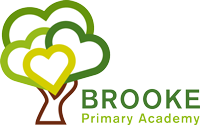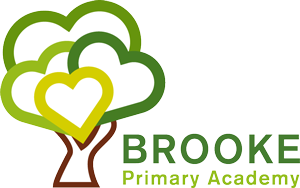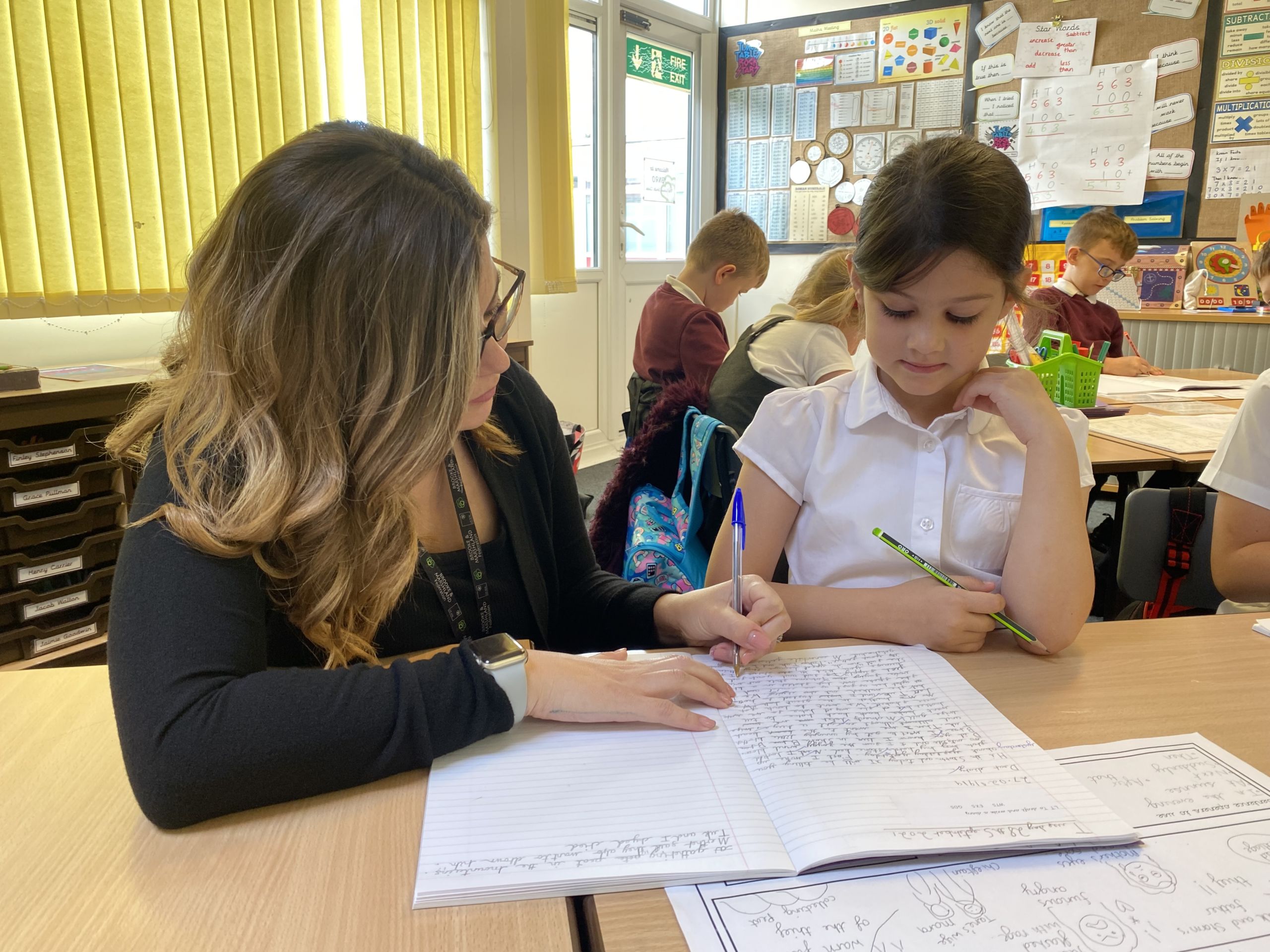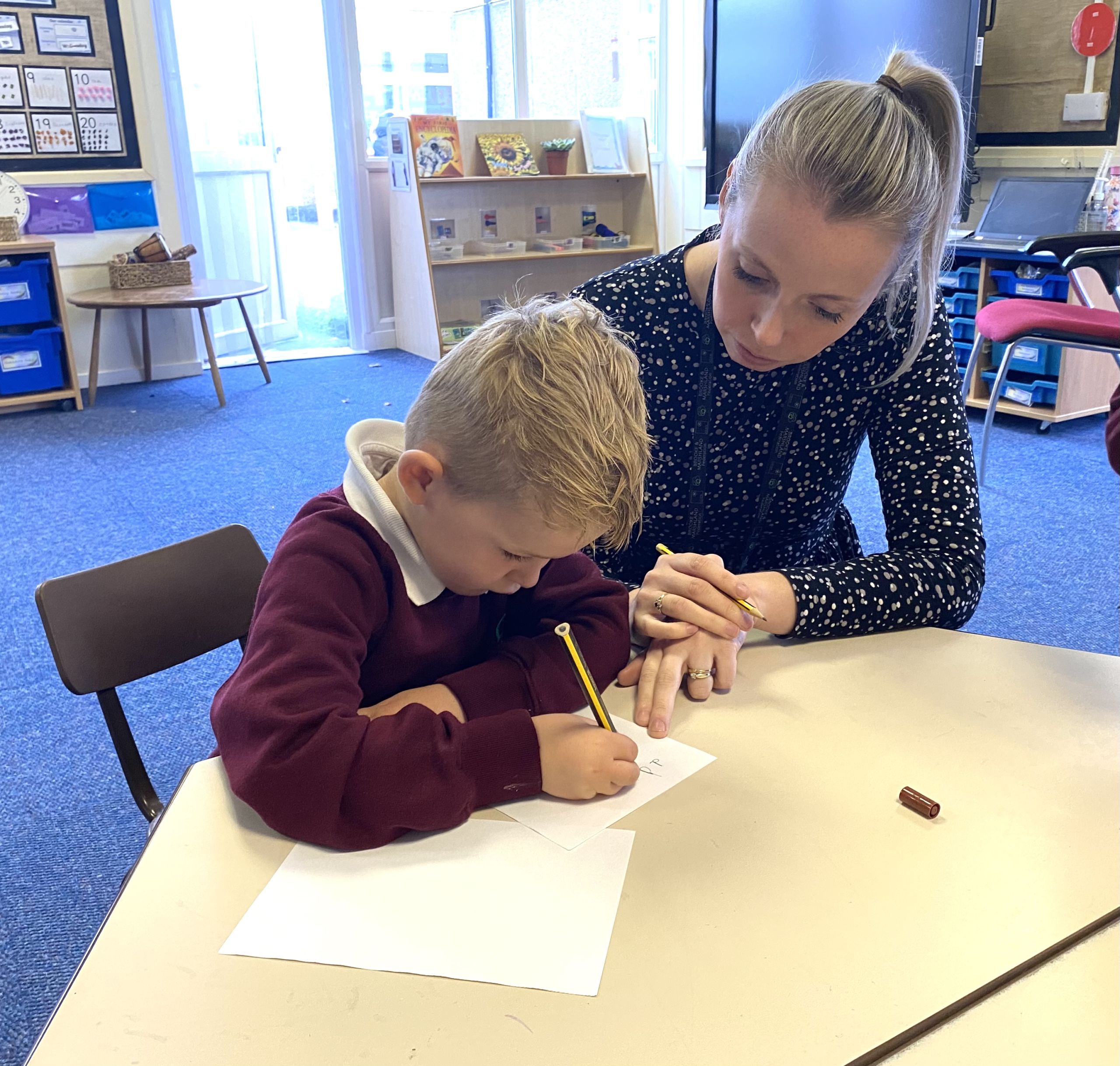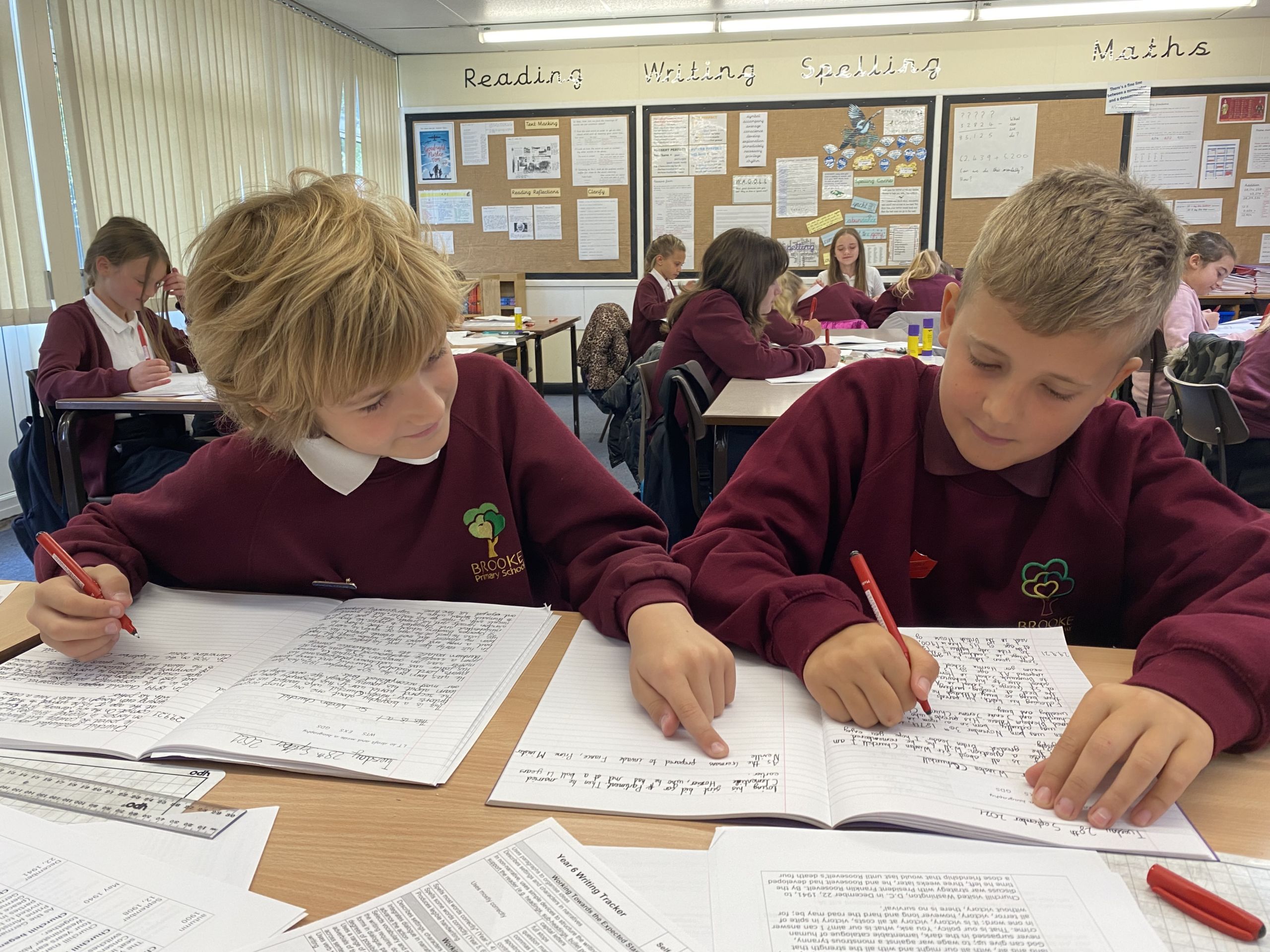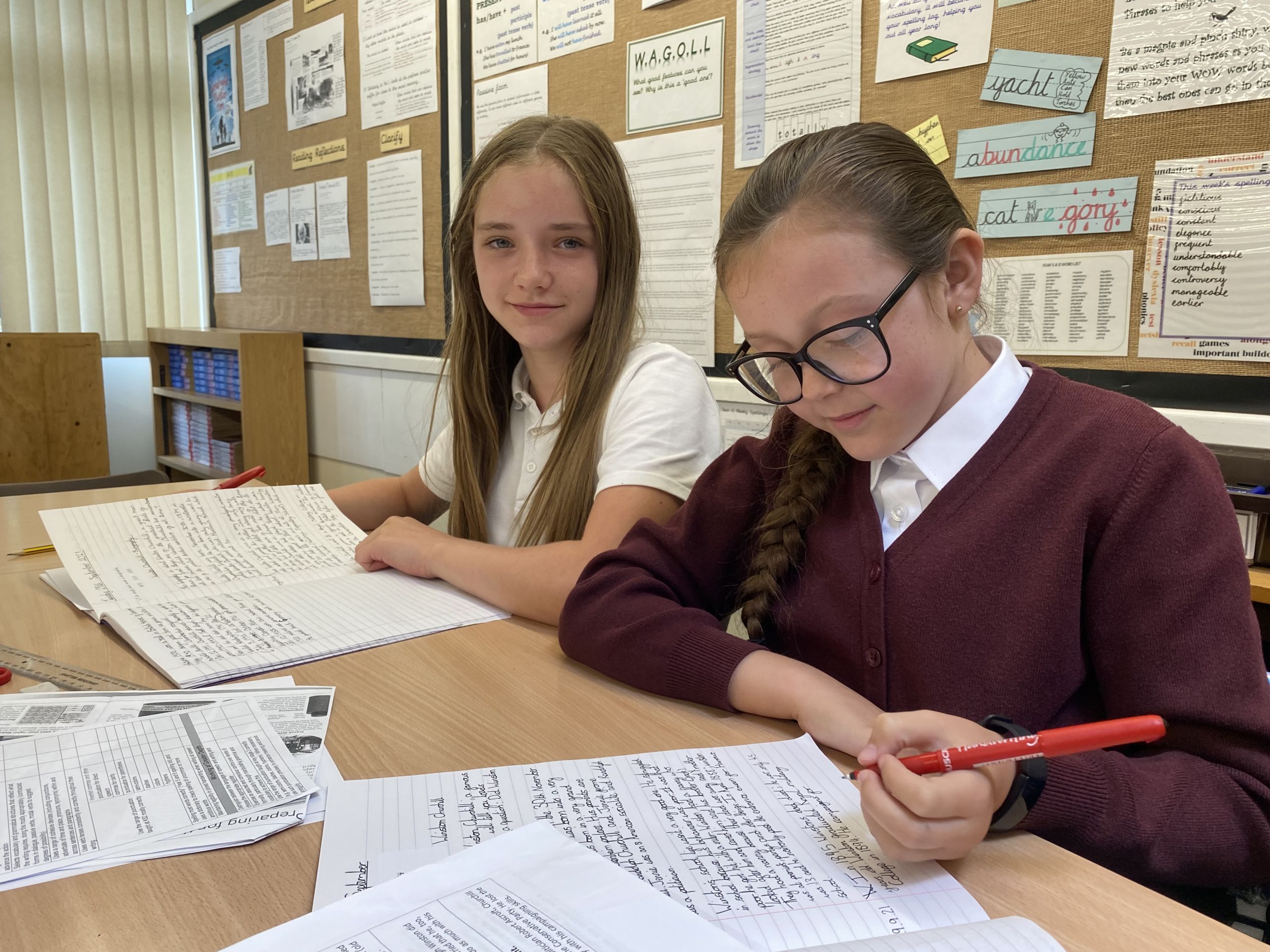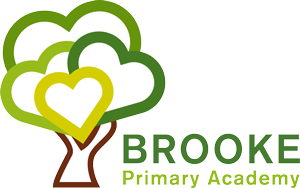
A Venn Academy Trust School
– Together we will…
Venn is a pioneering academy trust, committed to building educational environments where all pupils are inspired to become lifelong learners who achieve the very highest standards possible.
Collaborating with all partners, the Trust works with its unique settings to create world class learning experiences for all.

Writing
Writing
Ambition
At Brooke Primary Academy, children will:
- Compose and transcribe with competency
- Take pride in what they write
- Develop a love of writing
- Have the ability to write for a range of purposes and audiences
Implementation
At Brooke Primary Academy, we believe that good writers start as good readers and our reading curriculum underpins our writing. By delving deeply into of our texts, the children enjoy writing creatively and meaningfully across a range of genres. Children are given the time and opportunity to explore ideas, practise skills and celebrate their writing. Our school promotes a love of writing through clubs, assemblies and competitions.
Impact
By the time a child leaves Brooke Primary Academy we hope that every child has developed the following:
• the stamina and skills to write at length
• an extensive vocabulary
• an understanding of the relationships between words, how to understand nuances in meaning, and how to develop their understanding of, and ability to use, figurative language.
• proficiency in spelling
• the ability to clarify the meanings of unknown words and words with more than one meaning
• the ability to accurately punctuate texts
• the use of appropriate grammar
• the ability to write in a range of genres including narratives, explanations, descriptions, comparisons, summaries and evaluations
• the ability to write for a range of purposes, audiences and contexts
• to transcribe with fluency, legibility and speed
Further information
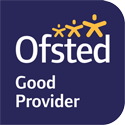
Support for SEND: The school effectively identifies and supports pupils with special educational needs and/or disabilities (SEND), involving parents in the assessment process and adapting lessons to help these pupils build new knowledge.

Positive Behaviour: Changes in how behaviour is managed have helped pupils reflect on their feelings and make better choices. This has resulted in positive behaviour during lessons and playtimes.

Governance and Leadership: Trustees and governors are skilled and committed, regularly visiting the school and maintaining an accurate picture of its operations to ensure continued improvement.

School Environment: The academy is described as a warm and welcoming place where pupils feel safe and happy. Respectful and positive relationships are central to the school’s environment.

High Expectations and Progress: The school sets high expectations for all pupils, which are being met. Parents appreciate the support and information provided by the staff and are pleased with the progress their children make.

Reading and Phonics: The school is committed to ensuring all pupils learn to read. Effective training and support for teachers, along with appropriate reading materials and catch-up sessions, help pupils read accurately and confidently.

Safeguarding: The school has effective safeguarding arrangements, creating an open and positive culture that prioritises pupils’ interests.

Curriculum and Learning: The curriculum is well-considered, building on previous learning to deepen understanding. While assessment systems need improvement, the school’s overall approach helps in identifying and supporting pupils’ needs.

Overall Effectiveness: The school is rated “Good” in all categories, including quality of education, behaviour and attitudes, personal development, leadership and management, and early years provision.

Early Years Provision: The early years setting promotes positive relationships and collaboration among children. Adults model effective communication and use assessment well to engage children in their learning.

Promotion of Values: Pupils learn about diversity and British values through various activities and demonstrate positive attitudes and respect for others. The school also encourages community involvement, such as the choir singing in residential homes and helping at the local food bank.

Extracurricular Activities: There is a wide range of clubs available, such as football, rugby, forest school, and choir, which help develop pupils’ talents and interests.

Anti-Bullying: Pupils respect each other, believe in the school’s values, and feel confident that any issues, including bullying, would be resolved quickly by adults.
